Paper
For submission of articles or Working Papers to CEsA, please send an email to:
comunicacao@cesa.iseg.ulisboa.pt
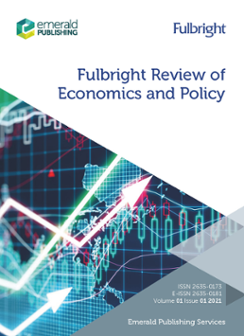
Common Causes in Grassroot Development: a case for community-based and communitydriven response in the postpandemic era
The purpose of Common Causes in Grassroot Development: a case for community-based and communitydriven response in the postpandemic era by Vincent Agulonye is to determine the impact of community-based and driven approaches during the lockdowns and early periods of the pandemic. The study examines the impact and perceptions of the state-led intervention. This would help to discover a better approach for postpandemic interventions and policy responses.
Abstract:
The purpose of Common Causes in Grassroot Development: a case for community-based and communitydriven response in the postpandemic era is to determine the impact of community-based and driven approaches during the lockdowns and early periods of the pandemic. The study examines the impact and perceptions of the state-led intervention. This would help to discover a better approach for postpandemic interventions and policy responses. This article used the inductive method and gathered its data from surveys. In search of global opinions on COVID-19 responses received in communities, two countries in each continent with high COVID-19 infection per 100,000 during the peak period were chosen for study. In total, 13 community workers, leaders and members per continent were sampled. The simple percentile method was chosen for analysis. The simple interpretation was used to discuss the results. Findings – The study showed that poor publicity of community-based interventions affected awareness and fame as most were mistaken for government interventions. The study found that most respondents preferred state interventions but preferred many communities or local assessments of projects and interventions while the projects were ongoing to adjust the project and intervention as they progressed. However, many preferred community-based and driven interventions. Research limitations/implications – State secrecy and perceived opposition oppression limited data sourcing for this study in countries where state interventions are performed in secret and oppression of perceived opposition voices limited data collection in some countries. Thus, last-minute changes were made to gather data from countries on the same continent. An intercontinental study requires data from more countries, which would require more time and resources. This study was affected by access to locals in remote areas where raw data would have benefited the study.
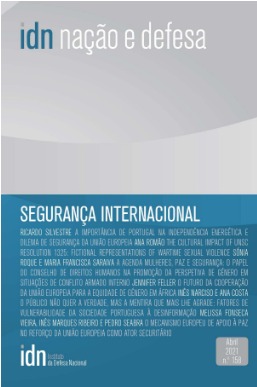
O Mecanismo Europeu de Apoio à Paz no Reforço da União Europeia como Ator Securitário
Authored by Melissa Fonseca Vieira, student of the Masters in Development and International Cooperation, Inês Marques Ribeiro and Pedro Seabra, O Mecanismo Europeu de Apoio à Paz no Reforço da União Europeia como Ator Securitário reflects on the European Union and how it has sought to strengthen its capabilities to promote conflict prevention.
Abstract:
In a volatile global context, the European Union has sought to strengthen its capabilities in order to promote conflict prevention, peace-building and the strengthening of international security. However, although it currently has mechanisms for crisis management and conflict prevention, these have not been sufficient or fully effective. The European Peace Facility (EPF) has emerged as an attempt to consolidate the EU’s role as a global security actor, through the direct financing of military operations. O Mecanismo Europeu de Apoio à Paz no Reforço da União Europei analyses its creation and the role it is expected to play in the context of the CSDP, providing the necessary framework within the framework of previous similar experiences. Despite the challenges imposed by its creation, the APRM represents a strong commitment by the EU to consolidate peace and strengthen security at global level.
This article was published in ISCTE-IUL’s repository. To access, click here.
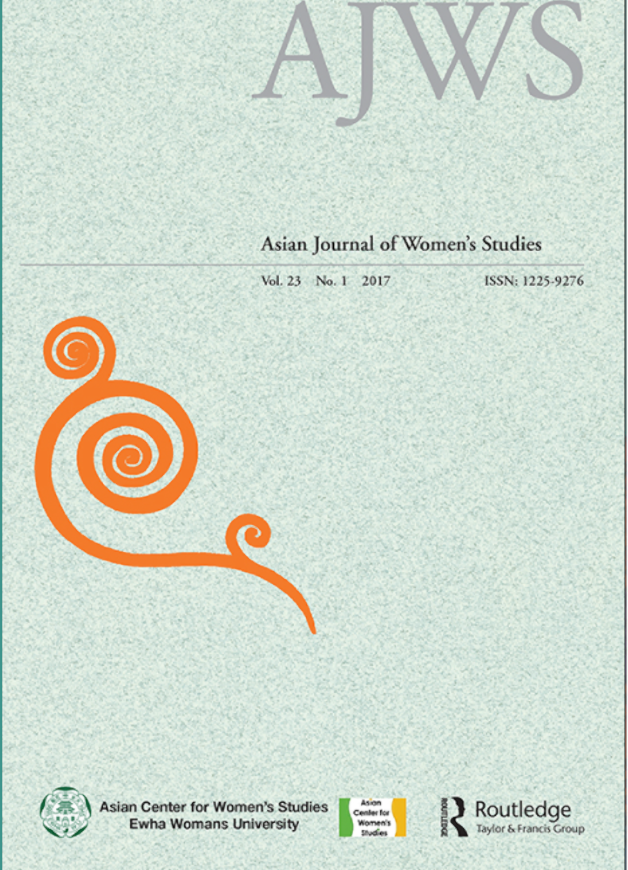
Impact of emergency cash assistance on gender relations in the tribal areas of Pakistan
The most recent article by Asif Igbal Dawar with Marcos Ferreira, Impact of emergency cash assistance on gender relations in the tribal areas of Pakistan (2021), is one of six articles he published throughout his doctoral research.
Abstract:
Impact of emergency cash assistance on gender relations in the tribal areas of Pakistan seeks to make a contribution to the discussion on the consequences of social change brought about by relief programs in humanitarian contexts. It examines the extent to which the Unconditional Cash Transfer (UCT) program (2014–2016) in the Pakistani tribal district of North Waziristan (NW) has influenced patriarchal gender norms in the region, in transforming perceptions about what men and women can do and on changing gender relations. Through interviews conducted in the field between 2017 and 2019, we examine the positive, albeit limited, impact on society and conclude that our study enabled a better understanding of micro practices and processes that challenge the patriarchal structure of society and the norms that sustain it. We illustrate how such processes have started to influence patriarchal norms by improving women’s status both at home and in the community, eventually leading to a shift in traditional perceptions and constructions of gender relations. Although these changes do appear significant, gender equality will continue to face tough challenges in the region and its consolidation depends on the collective efforts of development stakeholders to support unconditional, gender sensitive relief programs that transcend immediate humanitarian and post-humanitarian concerns.
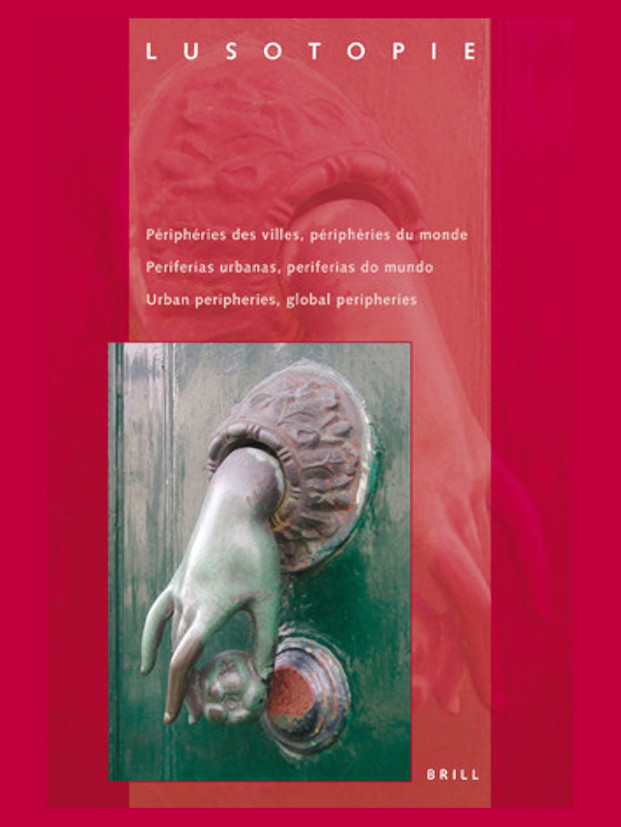
Modern Intimacies and Modernist Landscapes: Chinese Photographs in Late-Colonial Mozambique
Authored by Lorenzo Macagno, Modern Intimacies and Modernist Landscapes: Chinese Photographs in Late-Colonial Mozambique addresses a specific aspect of the social and cultural life of the Portuguese-Chinese in Mozambique. The first contingents, coming from the Chinese province of Guangdong, began to arrive in that region of East Africa in the second half of the 19th century.
Abstract:
Modern Intimacies and Modernist Landscapes: Chinese Photographs in Late-Colonial Mozambique addresses a specific aspect of the social and cultural life of the Portuguese-Chinese in Mozambique. The first contingents, coming from the Chinese province of Guangdong, began to arrive in that region of East Africa in the second half of the 19th century. Most settled in the city of Beira. By the 1950s, the Chinese community was already well integrated into modern life in the colonial Beira. The city was undergoing an unprecedented urban and architectural ebullition. In that period, the Luso-Chinese, in their capacity as merchants, also began to stand out in the field of photography. Based on a multi-sited research among the Luso-Chinese in the diaspora – and their family photo albums – this article reflects on two inseparable aspects of late-colonial modernity: architecture and photography.
Access this article, published in the University of Lisbon’s Repository, here.
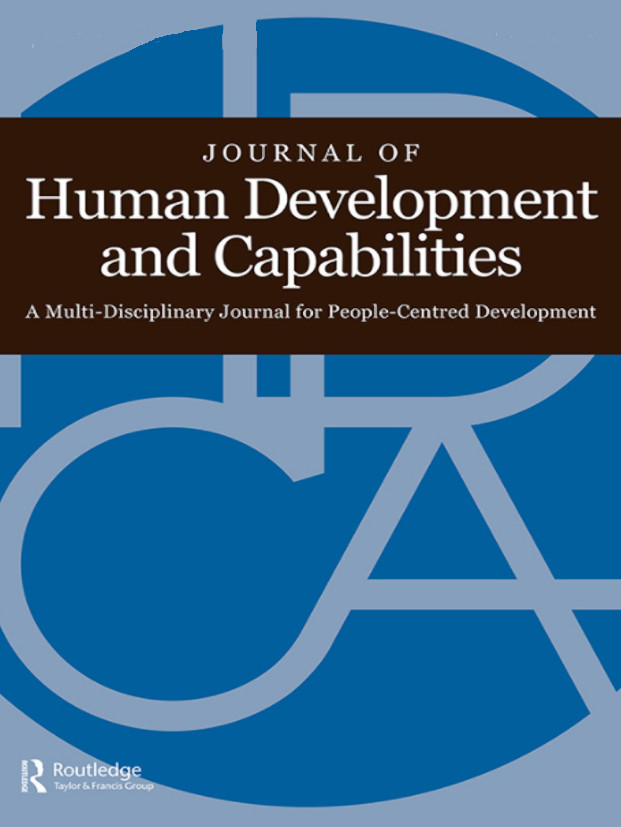
On the Nature and Determinants of Poor Households’ Resilience in Fragility Contexts
Authored by Christophe R. Quétel, Guy Bordin, Alexandre Abreu, Ilektra Lemi & Carlos Sangreman, On the Nature and Determinants of Poor Households’ Resilience in Fragility Contexts published in the Journal of Human Development and Capabilities – Taylor & Francis Online (31 May 2021) – focuses on the resilience of placed populations in the face of great adversity.
Abstract
Several global policy frameworks focus on managing (risks of) disasters affecting broad populations. In those frameworks resilience is a conceptualisation that possibly has important ideological implications. It is often opposed to fragility, and used to validate the notion of recurring insecurity, promote individual adaptability almost in the form of an obligation, and push the idea that crises/catastrophes are opportunities for profound changes. While effects from the COVID-19 pandemic have brought the protective role of the state to the fore, applying the word resilience to poor people requires clarification, especially in contexts of weak state public services and because assessment of complex poverty situations too often remains oversimplified and error-prone. We argue that to build capacity for resilience poor households need policies that protect and help them out of poverty, and that policy-making processes require engagement with people. Individuals must be asked about their perceptions and management of risks and threats, both in daily life and under exceptional circumstances, especially if the resulting stress factors accumulate and interact. This socially informed, place-specific, and multi-level approach could contribute substantially to identifying interventions, reducing poverty and poverty related risks, enhancing well-being and promoting development and cooperation programmes that meet people’s expectations.
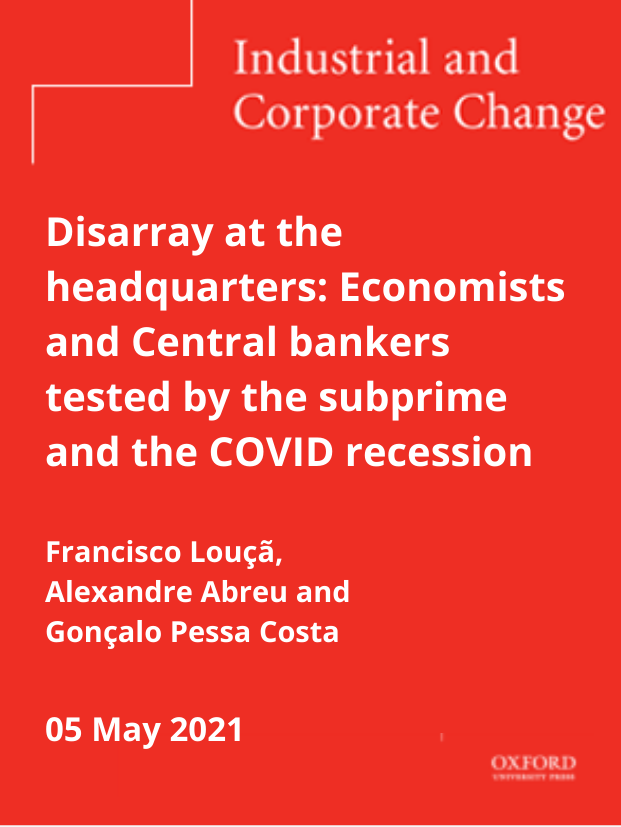
Disarray at the headquarters: Economists and Central bankers tested by the subprime and the COVID recessions
Authored by Francisco Louçã, Alexandre Abreu and Gonçalo Pessa Costa, Disarray at the headquarters: Economists and Central bankers tested by the subprime and the COVID recessions explores the discussions among economic modellers, central banks research staff and decision-makers, namely on the adequacy of unconventional monetary policy and fiscal expansionary measures after the crisis and to COVID 19 recession.
Abstract:
The article explores the discussions among economic modellers and central banks research staff and decision-makers, namely on the adequacy of unconventional monetary policy and fiscal expansionary measures after the subprime crisis and as the COVID recession is developing. First, the article investigates the arguments, models and policy proposals of several mainstream schools of economics that challenged the traditional Chicagoan orthodoxy based on Milton Friedman’s views, and developed the Lucas Critique, the New Classical synthesis and Real Business Cycle approach that replaced monetarism as the main rivals to old-time Keynesianism. Second, the transformation of Real Business Cycle models into Dynamic Stochastic General Equilibrium (DSGE) models is mapped, as it extended the ideas of the iniquity of government intervention and unified academic and central bank research. Yet, a battery of criticism was levied against the DSGE models and, as the debate emerged over quantitative easing and other tools of unconventional monetary policy, the need for policy pragmatism shattered the previous consensus. The article then proceeds to discuss how the leading mainstream academic economists reacted to changes in central banks‘ practices, noticing a visible dissonance within Chicago-school and DSGE economists, as well as major contortions of central bankers in order to justify their new postures. The article concludes with a call for an extensive menu of fiscal, industrial and innovation policies in order to respond to recessions and structural crises.





